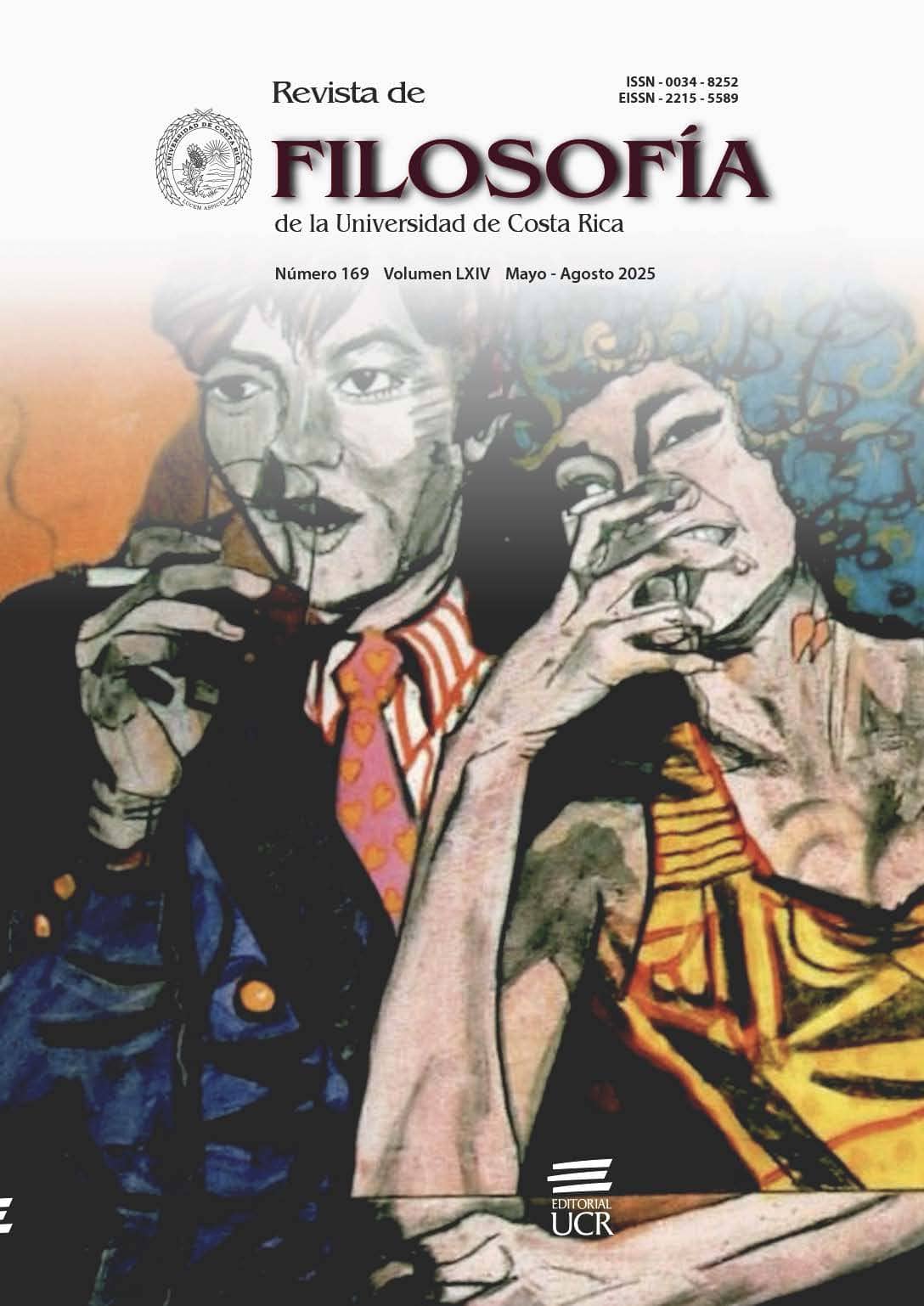Abstract
The philosophy of German idealism is influenced by the French Revolution, not only in its political dimension but also in the epistemological one. This article addresses the latter aspect, focusing on Friedrich Schiller´s aesthetics, highlighting how it becomes the former, as they are dialectically related. Consequently, the debate centers on how aesthetics constitutes an enlightened subjectivity. Schillerian subjectivity is studied through the role of autonomy, as it is fundamental to human freedom. Such a role implies a moral imperative, that is, an ethics aligns with the Enlightenment process marking the transition from the Medieval to the Moden era. Therefore, education becomes a central element in civic formation, based on Enlightenment aesthetics.
References
Acosta, Emiliano. 2023. «Schiller versus Fichte: estetización y moralización de lo político en el origen del idealismo alemán», Revista de Estudios sobre Fichte 14. https://doi.org/10.4000/ref.742
Duque, Félix. 1998. Historia de la Filosofía Moderna. La era de la crítica. Madrid: Akal.
Ierardo, Esteban. 2004. «La estética kantiana y la experiencia de la belleza». VI Jornadas de Sociología. Facultad de Ciencias Sociales, Universidad de Buenos Aires.
Fichte, Johann G. 1984. Discursos a la nación alemana. Barcelona: Orbis.
Fichte, Johann G. 2016. Primera y segunda Introducción Doctrina de la Ciencia nova methodo. Madrid: Xorki.
Fichte, Johann G. 1986. Reivindicación de la libertad de pensamiento y otros escritos políticos. Madrid: Tecnos.
Kant, Immanuel. 2017. «Respuesta a la pregunta ¿qué es la Ilustración?» En En defensa de la Ilustración. Barcelona: Alba.
Kant, Immanuel. 2012. Crítica del discernimiento. Madrid: Alianza.
Kant, Immanuel. 2016. Crítica de la razón práctica. Madrid: Alianza.
Rancière, Jacques. 2011. «The Aesthetic Revolution and Its Outcomes». The Absurd, no. 22, 16–21. https://www.jstor.org/stable/41765703.
Roehr, S. 2022. «Freedom and Autonomy in Schiller». Journal of the History of Ideas. University of Pennsylvania Press. https://www.jstor.org/stable/3654299?seq=1&cid=pdf- reference#references_tab_contents
Safranski, Rüdiger. 2009. Romanticismo. Una odisea del espíritu alemán. Madrid: Tusquets.
Suñol, Viviana. 2002. «La belleza como ‘puente’ entre la sensibilidad y la razón humana». Revista de Filosofía y Teoría Política 34, 325-335. https://www.rfytp.fahce.unlp.edu.ar/article/view/RFyTPn34a39/html_127.
Wilm, Emil. 1910. «The Relation of Schiller to Post-Kantian Idealism». The Journal of English and Germanic Philology 9 (1), 20-24. https://www.jstor.org/stable/27700012?typeAccessWorkflow=login.
Zalamea, Fernando. 2009. «Friedrich Schiller: estética y libertad». Revista de Estudios Sociales 34. http://journals.openedition.org/revestudsoc/15375.
##plugins.facebook.comentarios##

This work is licensed under a Creative Commons Attribution-NonCommercial-NoDerivatives 3.0 Unported License.
Copyright (c) 2025 Revista de Filosofía de la Universidad de Costa Rica

